Climate Weather

What is the difference between weather and climate ?
This text defines and differentiates between weather and climate. Weather is described as a short-term phenomenon, characterized by its variability, localized nature, and influence on daily activities. In contrast, climate is defined as a long-term pattern, distinguished by its stability, regional scope, and impact on ecosystems and agriculture. The text emphasizes the importance of understanding these differences for decision-making in various aspects of human life.

How does climate variability affect global weather patterns ?
The impact of climate variability on global weather patterns is substantial, affecting temperature, precipitation, wind patterns, and extreme weather events. Key influences include El Niño and La Niña phases, monsoon systems, altered rainfall distribution, jet stream variations, tropical cyclones, heatwaves, cold spells, storms, floods, and droughts. Long-term climate trends like global warming also significantly affect weather patterns. Understanding these interactions is crucial for predicting future conditions and addressing climate-related challenges.

How does climate change influence weather patterns and extreme weather events ?
Climate change significantly affects weather patterns and increases the frequency and intensity of extreme weather events. It influences global wind patterns, changes in ocean currents, and variations in seasonal patterns. Moreover, it leads to more frequent and intense heatwaves, severe storms and hurricanes, extreme precipitation events, and droughts. These impacts highlight the urgent need for action to mitigate climate change and adapt to its effects.
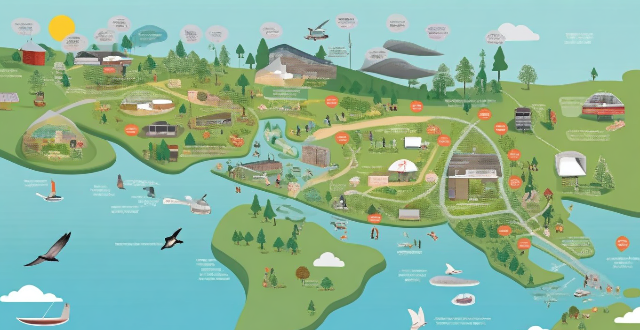
How do extreme weather events affect global climate change ?
Extreme weather events, such as hurricanes, floods, droughts, and heatwaves, have a significant impact on global climate change. They can exacerbate existing climate conditions and contribute to the overall warming of the planet by increasing greenhouse gas emissions, affecting ecosystems and biodiversity, disrupting agriculture and food production, and impacting human health and well-being. It is essential that we work together to mitigate the effects of extreme weather events and address the root causes of climate change to ensure a sustainable future for all.

What is the difference between weather forecasting and climate prediction ?
Weather forecasting and climate prediction are two related but distinct fields with different scopes, timescales, and methodologies. Weather forecasting focuses on short-term predictions for specific locations, while climate prediction looks at long-term trends and patterns globally.

Can climate data analysis accurately predict future weather patterns ?
Climate data analysis, utilizing sophisticated climate models based on physical laws and accounting for complex interactions within the Earth system, plays a crucial role in predicting future weather patterns. These models allow scenario-based projections and ensemble forecasting to account for uncertainties. While they are continuously improved as new scientific understanding emerges, it's important to distinguish between weather forecasting (short-term events) and climate prediction (long-term trends). Climate prediction involves more variables, broader trends, external forcings, and wider confidence intervals compared to weather forecasting. However, climate models face uncertainties such as natural variability, model discrepancies, emission scenarios, feedback mechanisms, and regional differences. Despite these challenges, climate science has made progress in predicting aspects like global warming, sea level rise, extreme weather events, regional changes, and carbon cycle responses. In conclusion, climate data analysis can provide valuable insights into potential future climate patterns but comes with inherent uncertainties, especially in forecasting specific weather events far into the future. Ongoing advancements in climate science aid in developing informed policies and adaptation strategies.

How do extreme weather events relate to climate change ?
Extreme weather events, such as hurricanes, heatwaves, floods, and droughts, have become more frequent and intense in recent years due to climate change caused by human activities. Climate change leads to increased temperatures, changes in precipitation patterns, stronger storms, and impacts on ecosystems. Examples of extreme weather events linked to climate change include Hurricane Sandy, Australian Bushfires, European Heatwaves, and the Indian Ocean Dipole. It is crucial to take action to mitigate the effects of climate change and adapt to the changing climate.
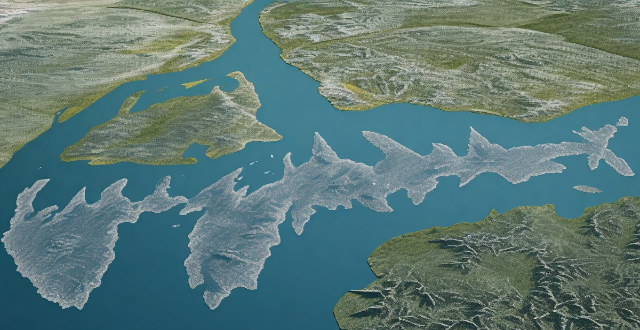
How do climate skeptics explain extreme weather events in the context of climate change ?
Climate skeptics present alternative explanations for extreme weather events, often challenging the scientific consensus on climate change. They argue that such events are part of natural variability, unrelated to human activities. Skeptics question the interpretation of climate data, suggesting that any increase in extreme weather is not statistically significant and that climate models have uncertainties. They propose alternative causes for weather patterns, such as land use changes and industrial pollution. Furthermore, they emphasize human resilience and adaptation through technology and economic growth as key to dealing with extreme weather. Overall, climate skeptics offer a range of arguments that differ from the prevailing scientific view on climate change.
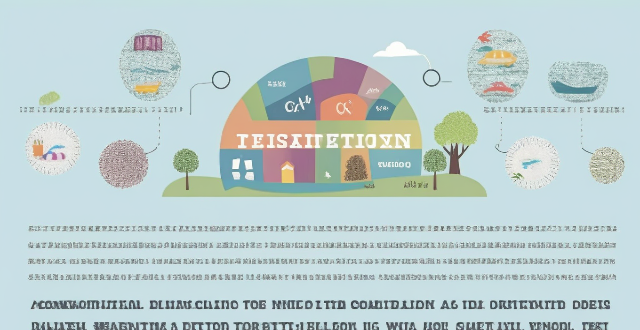
What is the relationship between climate change and extreme weather events ?
The text discusses the correlation between climate change and extreme weather events. It outlines how climate change, caused by human activities such as burning fossil fuels and deforestation, leads to an overall rise in global temperatures, affecting precipitation patterns and increasing storm intensity. This results in more frequent and severe heatwaves, changes in rainfall leading to floods or droughts, and more intense storms including hurricanes, cyclones, and typhoons. The essay concludes that there is a clear relationship between climate change and extreme weather events, and emphasizes the urgency of taking action to mitigate climate change and adapt to its impacts.
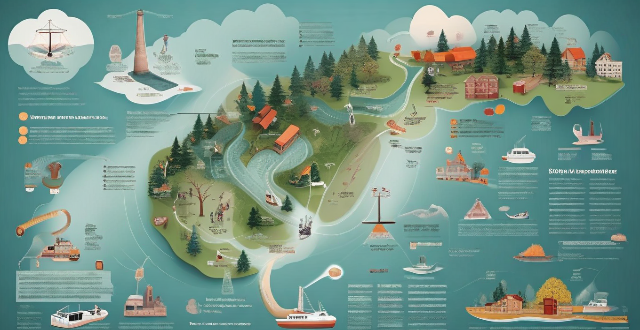
What are the impacts of climate change on global weather patterns ?
Climate change, driven by human activities like burning fossil fuels and deforestation, is altering global weather patterns. These changes include increased frequency and intensity of extreme weather events such as heatwaves, heavy precipitation, droughts, and storms, as well as changes in seasonal weather patterns like early spring onset and altered monsoon patterns. Long-term changes in weather patterns include polar amplification, ocean circulation changes, and atmospheric circulation changes. These impacts pose significant challenges for adaptation and mitigation efforts aimed at reducing negative effects on ecosystems, societies, and economies worldwide.
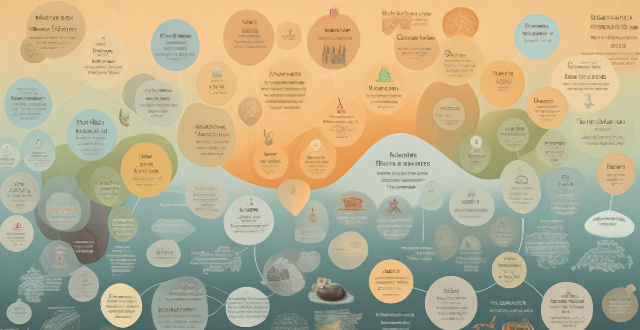
How does climate data analysis contribute to our understanding of extreme weather events ?
Climate data analysis is essential for understanding extreme weather events. It allows scientists to identify trends, make predictions, and assess the impacts of these events on people and ecosystems. Key aspects include long-term data collection, statistical analysis, modeling techniques, vulnerability assessments, and public education. This comprehensive approach helps us prepare for and mitigate the effects of extreme weather, ultimately enhancing our resilience and adaptability in a changing climate.
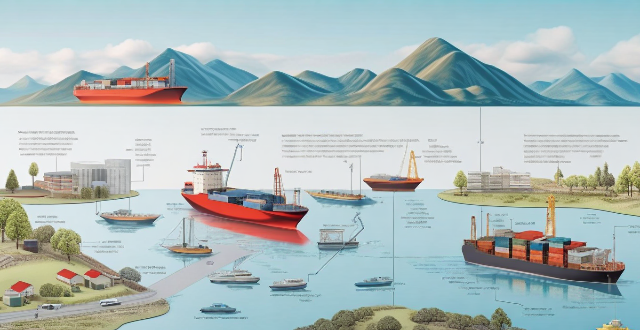
How can climate risk management help mitigate financial losses due to extreme weather events ?
Climate risk management is crucial for reducing financial losses from extreme weather. It involves identifying, assessing, and prioritizing climate-related risks, and developing strategies to manage and adapt to these risks. Organizations can reduce their exposure to high-risk areas, enhance resilience and preparedness, diversify risks, and invest in insurance and contingent finance mechanisms. By implementing effective climate risk management practices, organizations can mitigate the impact of extreme weather events on their operations and finances.

How does climate variability influence extreme weather events, such as hurricanes and droughts ?
Climate variability refers to the fluctuations in the Earth's climate system over time. The effects of climate variability are often seen in extreme weather events, including hurricanes and droughts. Climate variability can influence hurricanes by causing warmer ocean waters and changes in atmospheric circulation patterns. It can also affect droughts by changing precipitation patterns, increasing evaporation rates, and altering vegetation cover. As global temperatures continue to rise due to human activities, these extreme weather events are expected to become more frequent and severe.

What are the main causes of extreme weather events ?
Extreme weather events, such as hurricanes, tornadoes, floods, and droughts, are caused by a combination of natural climate variability, human activities, and changes in the Earth's climate system. Natural climate variability includes phenomena like El Niño and La Niña, which can cause extreme weather conditions around the world. Human activities, such as greenhouse gas emissions, land use changes, and pollution, also play a significant role in causing extreme weather events. Changes in the Earth's climate system, such as sea level rise, ocean acidification, and changes in atmospheric circulation patterns, can also contribute to extreme weather events. Addressing both the underlying causes and implementing adaptation strategies is important to mitigate the impacts of these events.

How do scientists study and analyze extreme weather events ?
Scientists study and analyze extreme weather events using various methods, including data collection from meteorological stations, satellite imagery, radar, lidar, climate records, and paleoclimate data. They also use numerical weather prediction models, ensemble forecasting, global circulation models, and regional climate models for simulations and predictions. Statistical methods, trend analysis, attribution studies, synoptic climatology, and teleconnections are employed for analysis. Collaboration and public outreach play crucial roles in sharing information and findings.
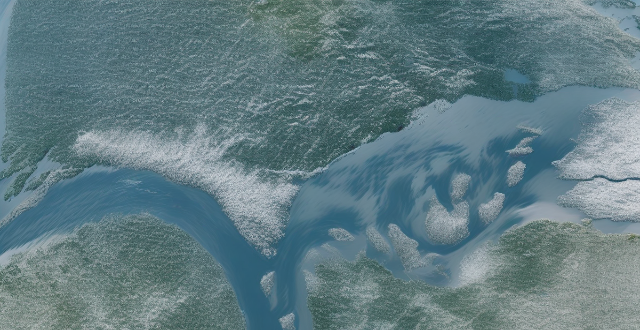
How do extreme weather events caused by climate change affect employment rates ?
This article explores the impact of extreme weather events caused by climate change on employment rates in various sectors, including agriculture, construction, and tourism. It highlights the vulnerability of these sectors to extreme weather events such as droughts, floods, heatwaves, hurricanes, tornadoes, wildfires, storms, rising sea levels, and reduced snowfall. The article also discusses potential mitigation strategies that can help reduce the impact of these events on employment rates in the affected sectors.

How can extreme weather events caused by climate change affect the scheduling of sporting events ?
The text discusses the impact of extreme weather events caused by climate change on the scheduling of sporting events. It highlights how these events can lead to cancellations or postponements, changes in venue conditions, travel disruptions, and reduced fan attendance. The text emphasizes the need for sports organizations and venues to develop strategies for dealing with these challenges to ensure the safety and enjoyment of all those involved in sporting events.

How can climate cooperation help mitigate the effects of extreme weather events ?
Climate cooperation is crucial in mitigating the effects of extreme weather events. It involves collaborative efforts between nations, organizations, and individuals to address climate change challenges. Key points include development of early warning systems, enhanced disaster risk reduction, promotion of sustainable practices, strengthened international agreements and policies, increased funding and resource allocation, promotion of environmental education and awareness, and facilitation of humanitarian aid and recovery efforts. By working together, we can build a more resilient world capable of withstanding the challenges posed by a changing climate.

What are some examples of recent extreme weather events ?
This article discusses recent examples of extreme weather events that have caused significant damage to human life, property, and the environment. These include Hurricane Ida (2021), Australian Bushfires (2019-2020), California Wildfires (2020), European Heatwave (2019), Japanese Typhoon Hagibis (2019), and Indian Cyclone Amphan (2020). The article concludes by emphasizing the need for individuals, communities, and governments to take action to mitigate the effects of these events and adapt to changing weather patterns.

What impact do extreme weather events have on consumer purchasing habits ?
Extreme weather events, such as hurricanes, floods, and heatwaves, significantly impact consumer purchasing habits. These changes in buying behavior are often driven by necessity, fear, and the desire to be prepared for future events. The text discusses the various ways extreme weather events can influence what and how consumers purchase. It also highlights the need for businesses and retailers to adapt to meet the changing demands and priorities of their customer base.
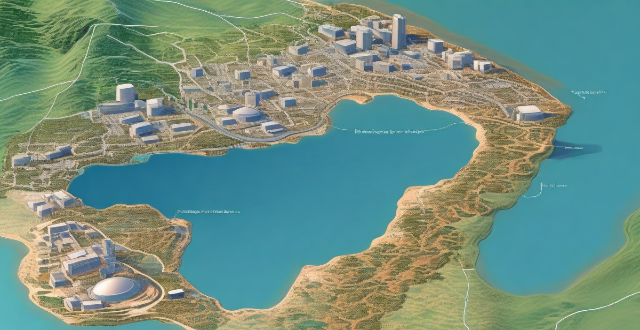
Can climate variability be predicted accurately ?
Climate variability refers to the fluctuations in temperature, precipitation, and other weather patterns over time. While it is difficult to predict climate variability with complete accuracy, scientists have made significant progress in understanding and forecasting these changes using a combination of observational data, climate models, and other tools. Factors contributing to climate variability include solar radiation, volcanic eruptions, human activities, ocean circulation, and El Niño Southern Oscillation (ENSO). Tools used for climate prediction include global climate models (GCMs), remote sensing, palaeoclimatology, weather stations and buoys, and reanalysis data. Continued research and advancements in technology will help improve our ability to predict future climate scenarios and inform decision-making related to climate change adaptation and mitigation strategies.

How do extreme weather events related to climate change affect national security ?
This analysis explores the connection between extreme weather events and national security, discussing how climate change affects various sectors such as food supply, economy, public health, defense, migration, sovereignty, and cybersecurity. It emphasizes the need for integrated strategies to address these challenges and promote societal resilience against climate change impacts.

How does the greenhouse effect affect weather patterns ?
The greenhouse effect is a natural process that maintains Earth's warm temperatures, making life possible. However, human activities like burning fossil fuels and deforestation have increased the concentration of greenhouse gases, leading to global warming. This enhanced greenhouse effect affects weather patterns by causing higher global temperatures, changes in precipitation patterns, extreme weather events, disruption of seasonal patterns, and changes in ocean currents. Addressing this issue requires reducing greenhouse gas emissions and adapting to the changing climate.

How do different regions of the world experience climate variability differently ?
The article discusses climate variability and how different regions of the world experience it. Tropical regions have high temperatures and rainfall but also extreme weather events like hurricanes and monsoons, influenced by El Niño Southern Oscillation (ENSO). Arid and semi-arid regions face very little precipitation and high temperatures, making them vulnerable to climate change impacts. Polar regions experience extreme cold temperatures and limited sunlight in winter, with rapid warming due to climate change leading to melting ice caps and rising sea levels. Temperate regions have moderate temperatures and seasonal precipitation variations, with four distinct seasons and varying weather patterns, but can still be affected by extreme weather events like floods, droughts, and heatwaves.

Can climate models help us prepare for natural disasters like hurricanes and floods ?
Climate models are mathematical representations of the climate system that scientists use to understand how the atmosphere, oceans, land surface, and ice interact. These models can be incredibly useful in predicting and preparing for natural disasters like hurricanes and floods. Climate models can help predict weather patterns by analyzing data from various sources such as satellites, weather stations, and buoys. This information is then used to create forecasts that can give us an idea of what kind of weather conditions we might expect in the future. Short-term forecasts are typically used for daily weather predictions and can help us prepare for upcoming storms or other severe weather events. Long-term forecasts look at larger trends over time and can help us understand how climate change may affect our region's weather patterns. This information can be crucial when planning for potential natural disasters like hurricanes and floods.
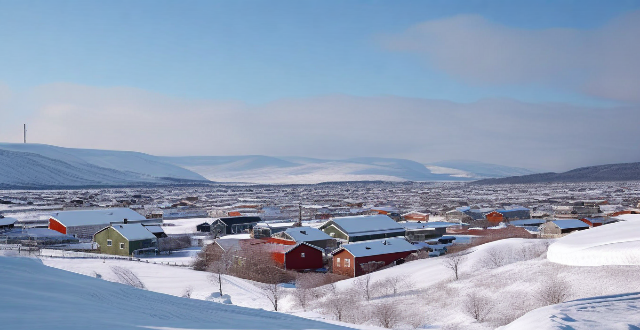
How can we protect ourselves from the negative effects of climate change on our health ?
Climate change poses a threat to our health through extreme weather, air pollution, and the spread of diseases. To protect ourselves, we should stay informed about weather updates, maintain good health practices, reduce exposure to pollutants, adapt to environmental changes, and support sustainable practices. By being proactive, we can mitigate the negative effects of climate change on our well-being and contribute to larger efforts in combating this global issue.
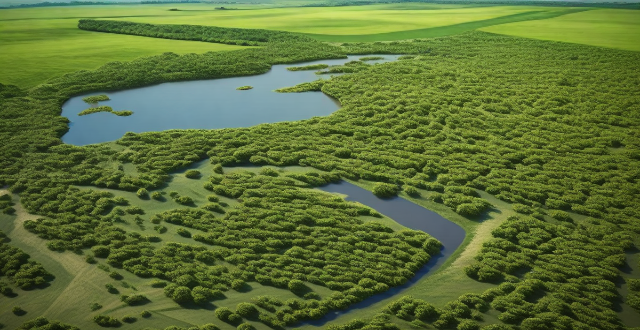
What is climate change and how is it affecting the world ?
Climate change is a significant and long-term alteration in global weather patterns caused by human activities releasing greenhouse gases. These gases trap heat, leading to global warming with various environmental, socioeconomic, and humanitarian impacts. Mitigation and adaptation are crucial for minimizing these effects.
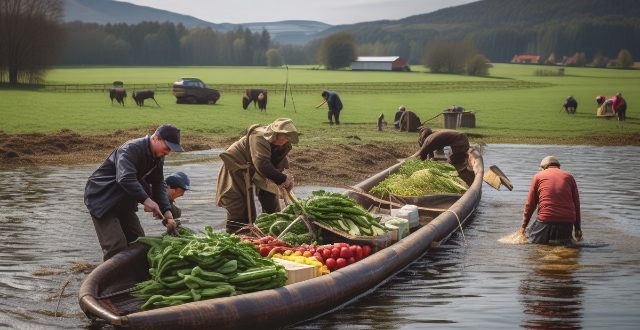
How can we ensure food security in the face of extreme weather events caused by climate change ?
The article discusses strategies for ensuring food security in the face of extreme weather events caused by climate change, including diversifying crop production, improving water management, using climate-resilient crop varieties, adopting sustainable agricultural practices, strengthening early warning systems and disaster risk reduction, supporting smallholder farmers, and promoting policy coherence and international cooperation.
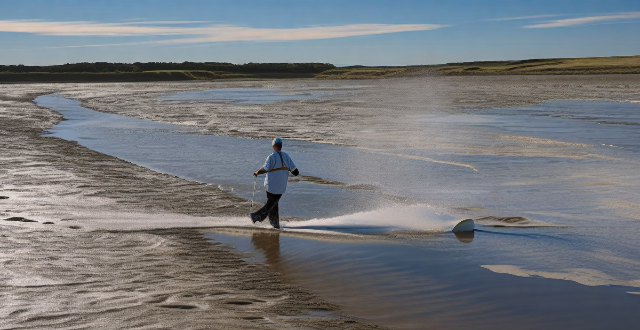
How can climate services be used to manage water resources effectively ?
Climate services play a critical role in water resources management by providing accurate and timely information on weather patterns, climate change, and related phenomena. These services can be used to forecast precipitation, monitor river levels for flood early warning systems, assess the impact of climate change on water availability, plan adaptation measures, monitor drought conditions, manage water quality, and protect ecosystems. By leveraging these services, we can ensure the effective use of water resources, adapt to changing climates, prepare for extreme weather events, and guarantee a sustainable water supply for future generations.

How can we predict and prepare for extreme weather events ?
Predicting and preparing for extreme weather events is a critical aspect of modern society. With advancements in technology and scientific research, we now have the ability to forecast these events with greater accuracy than ever before. However, predicting and preparing for extreme weather events requires a multi-faceted approach that involves both scientific knowledge and practical preparation. In this article, we will explore some of the key ways in which we can predict and prepare for extreme weather events.